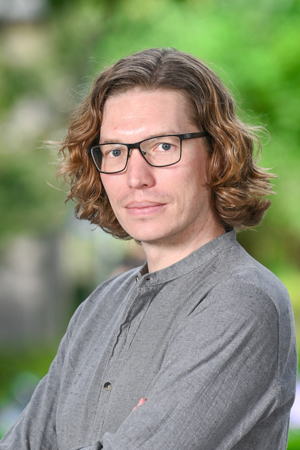Lucien Mathot Monson is a Postdoctoral Teaching Fellow for Global Perspectives on Society (GPS) at NYU Shanghai. He specializes in the comparative history of philosophy. His research draws on both the European and Chinese philosophical traditions to explore one of the fundamental questions of philosophy: what does it mean to be human? In particular, he is interested in the way sex, gender, and language have influenced the way we have asked and answered this question over time.
While earning his PhD in philosophy, Monson spent two years conducting research at Fudan University on modern Chinese thought. He wrote his dissertation, Learning to be Human: Ren, Modernity, and the Philosophers of China’s Hundred Days' Reform, on the emergence of modern selfhood in Chinese philosophy. The dissertation explores the way thinkers like Liang Qichao, Kang Youwei and Tan Sitong responded to political and philosophical crisis in their time by reexamining the nature of the human being through a critical engagement with the core Confucian concept of ren 仁 (humaneness).
More recently, Monson has written on how traditional understandings of selfhood and gender in Chinese thought can help us better interpret early modern Chinese feminism. Meanwhile his current project, “Ren and Kalos Kagathos: The Male Aristocratic Ideal in Confucius and Plato” shows how differing cultural attitudes toward masculinity and sexual desire influenced the way these two thinkers theorized the nature of the self and self-cultivation.
Education
PhD, Philosophy
University of South FloridaMA, Philosophy
Fordham UniversityBA, Philosophy
Fordham University
Research Interests
- Comparative Philosophy
- Confucianism
- Tan Sitong
- History of Philosophy (Chinese/European)
- Philosophy of Language
- Selfhood
- Modernity
- Feminism
- Sex/Gender


